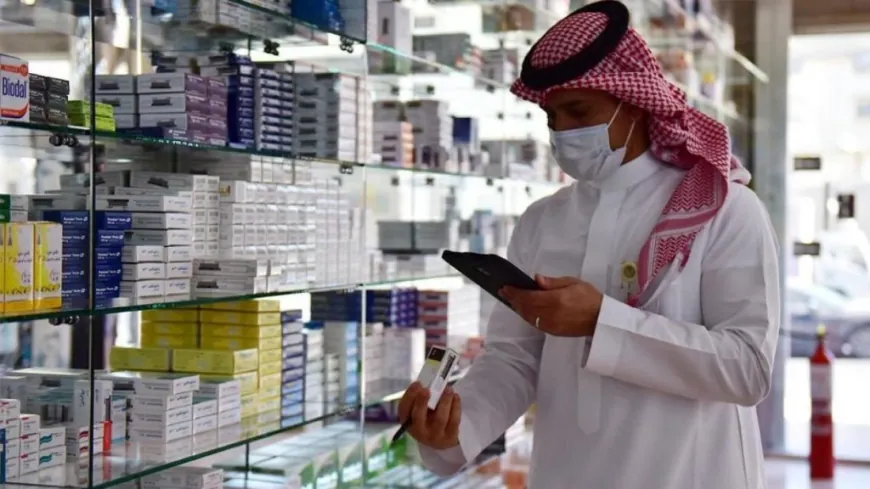Growing Saudi Arabia Pharmaceutical Drugs Market
The Saudi Food and Drug Authority (SFDA) is the key regulatory body that oversees all aspects of the pharmaceutical industry in Saudi Arabia.

Regulations and standards in the Saudi pharmaceutical sector
The Saudi Food and Drug Authority (SFDA) is the key regulatory body that oversees all aspects of the pharmaceutical industry in Saudi Arabia. The SFDA ensures drug safety, efficacy and quality through stringent registration and licensing requirements. All pharmaceutical companies must obtain necessary licenses and permits from the SFDA to produce, import or distribute drugs in the kingdom. Regular facility inspections and quality testing of manufactured drugs are also conducted. Saudi Arabia follows international good manufacturing practice (GMP) standards that are on par with regulations in developed markets like the US and Europe. This helps build consumer trust in locally manufactured drugs.
Growth of domestic pharmaceutical production
While Saudi Arabia was historically reliant on imports to meet its drug needs, the government's Vision 2030 aims to locally produce at least 50% of the kingdom's pharmaceutical needs. To achieve this, several initiatives are underway to boost domestic manufacturing capabilities. Major pharmaceutical companies from Gulf countries as well as multinational corporations are setting up manufacturing plants in Saudi Arabia. For example, Gulf Pharmaceutical Industries (Julphar) recently inaugurated a new injectables facility worth $80 million. Other companies like SPIMACO and SABIC also expanded their production lines. The availability of low-cost utilities, cheap labor and subsidies have attracted significant investments in the local industry. This is helping reduce Saudi Arabia's drug import bill estimated at $5 billion annually.
Demand drivers in the Saudi healthcare sector
Saudi Arabia has a population of over 34 million people with nearly 75% under the age of 30. Non-communicable diseases like diabetes, cancer and heart conditions are on the rise. This is fueled by changing lifestyles, rising income levels and an aging population. The high disease burden has increased demand for medicines manifold. Treatment and overall healthcare spending are also being augmented by the government. Universal healthcare programs provide medical insurance for all Saudis. Projects like the recently launched National Transformation Programme and the Quality of Life Program commit billions of dollars to develop the healthcare infrastructure. These positive factors are stimulating overall growth in pharmaceutical consumption and providing opportunities for local drug makers.
Formulation strategies of Saudi pharma firms
Most domestic firms began with producing generic drugs through technology transfer arrangements with foreign partners. They focused on off-patent molecules facing little competition from innovator brands. Over time, local drug makers adopted more advanced formulation techniques. Today many player's product portfolios span tablets, capsules, syrups, creams, injections, eye/ear drops and other dosage forms. Several therapeutic areas like analgesics, antibiotics, cardio-diabetes are addressed. Localizing production has allowed companies to directly sell to government hospitals and affiliated healthcare providers, gaining significant market share. Gulf Pharma especially produces world-class sterile injectables through an advanced aseptic filling facility. Others such as SPIMACO leverage Saudi's low-cost advantage to export dosage forms in high demand like paracetamol tablets.
Cutting-edge research driving innovation
Constant R&D is recognized as crucial for the Saudi Arabia Pharmaceutical Drugs Market to sustain long term growth beyond generics. A number of drug makers have in-house research teams focused on new drug delivery systems, biosimilars and herbals. King Abdullah International Medical Research Center (KAIMRC) is a key research institution working with pharma companies on feasibility studies, clinical trials and technology transfers. KAIMRC also trains Saudi scientists and offers funding for pivotal research projects. These efforts have led to new patents and products suited to local health needs. Most notably, Gulf Pharma isolated active compounds from plants like Artemisia herba-alba with anti-microbial properties. This can potentially yield alternative treatments to antibiotic-resistant infections. Other projects aim to utilize Saudi's unique desert plants and herbs for conditions like diabetes and inflammation. Such innovation will reduce import dependence and possibly expand exports in future.
Expanding to regional pharmaceutical markets
Buoyed by their strong presence in the local Saudi market, leading companies have set sight on exporting to other GCC and MENA countries. Regulatory similarities, cultural affinities and geographical proximity offer strategic advantages. The United Arab Emirates, Kuwait, Oman, Bahrain and Iraq have emerged as major export destinations alongside nations in North Africa and the Levant. Firms leverage local production capabilities, relationships with regional distributors and paperwork in local languages to get regulatory approvals faster. Financial backing from the Private Sector Stimulus Program also fuels export potential. Gulf Pharma for example is a market leader in Jordan, Palestine and Sudan and aims to increase regional sales contributions over the next 5 years. As in Saudi, expanding universal healthcare coverage across the region opens more export avenues for quality assured, low-cost generic drugs from kingdom.
In conclusion, Saudi Arabia Pharmaceutical Drugs Market growth backed by a comprehensive policy framework has significantly reduced the nation's reliance on imports for drug supplies. Continuous R&D investments and expansion to lucrative export markets will support the sector's contribution to the kingdom's post oil economic vision. With regulations aligning with global benchmarks, the Saudi pharma sector produces
Get more insights on Saudi Arabia Pharmaceutical Drugs Market
For Deeper Insights, Find the Report in the Language that You want
About Author:
Money Singh is a seasoned content writer with over four years of experience in the market research sector. Her expertise spans various industries, including food and beverages, biotechnology, chemical and materials, defense and aerospace, consumer goods, etc. (https://www.linkedin.com/in/money-singh-590844163)












